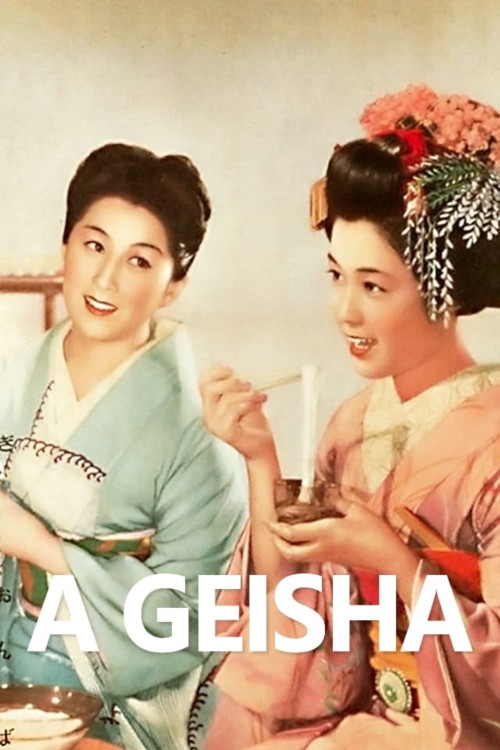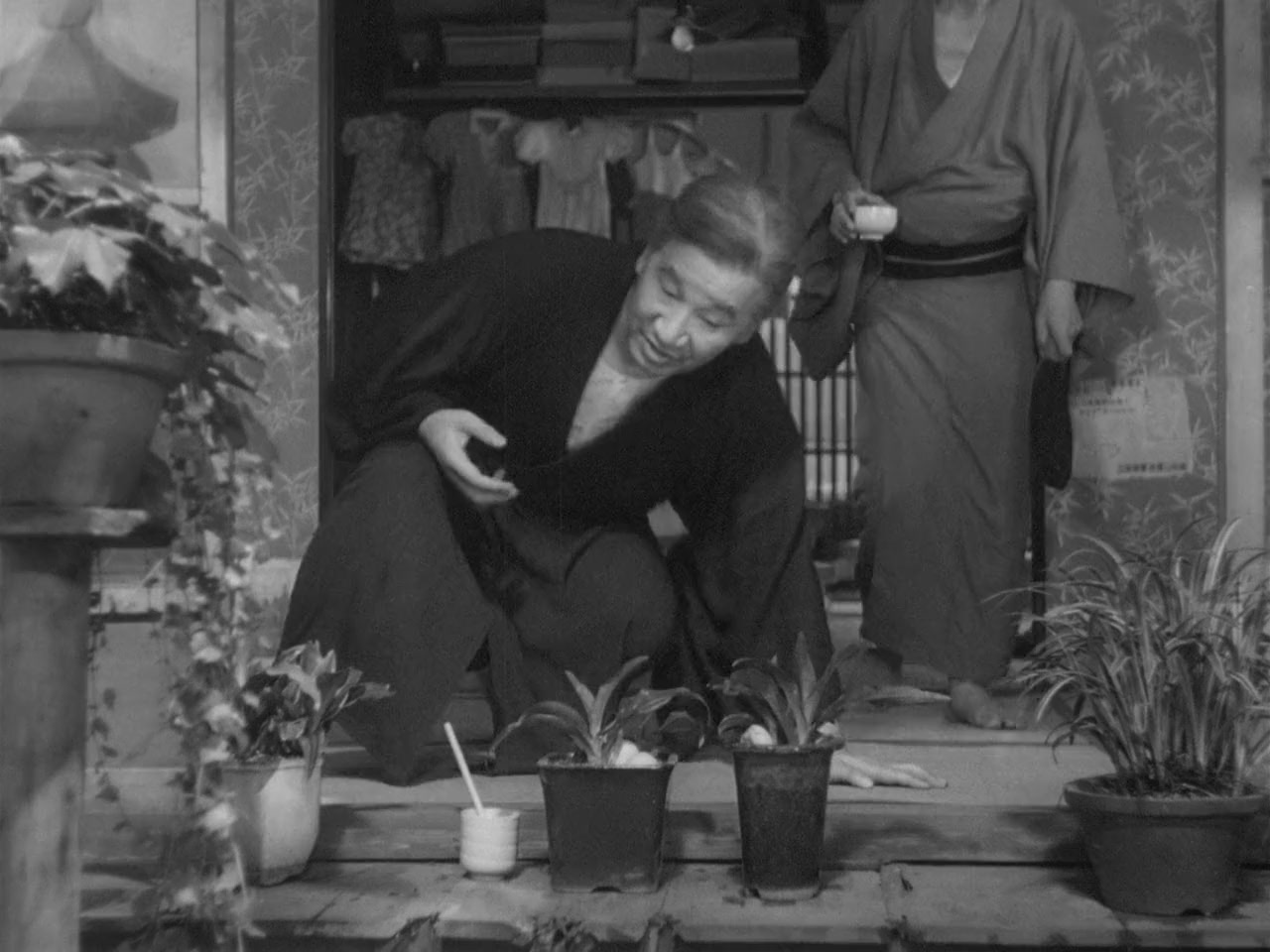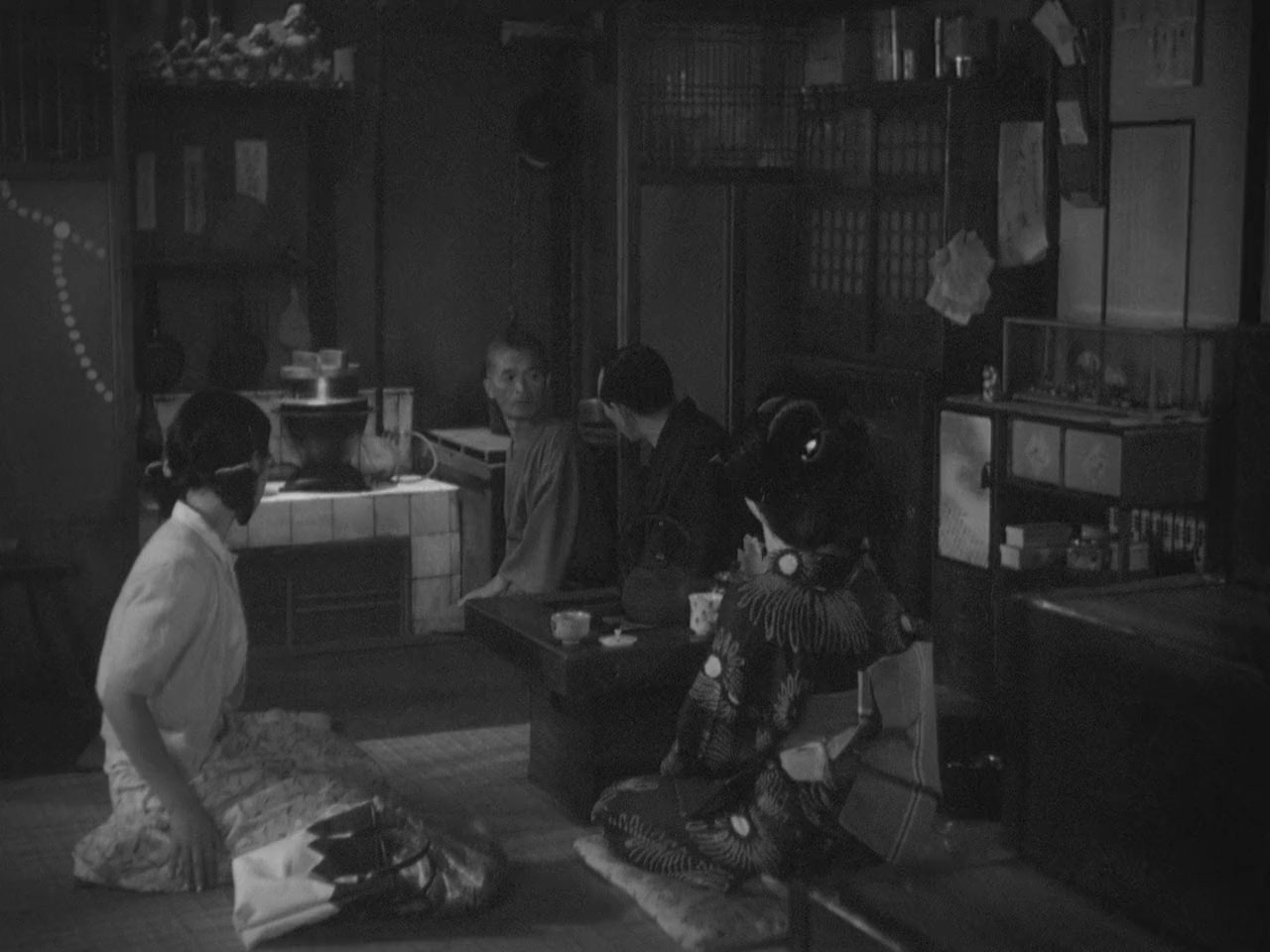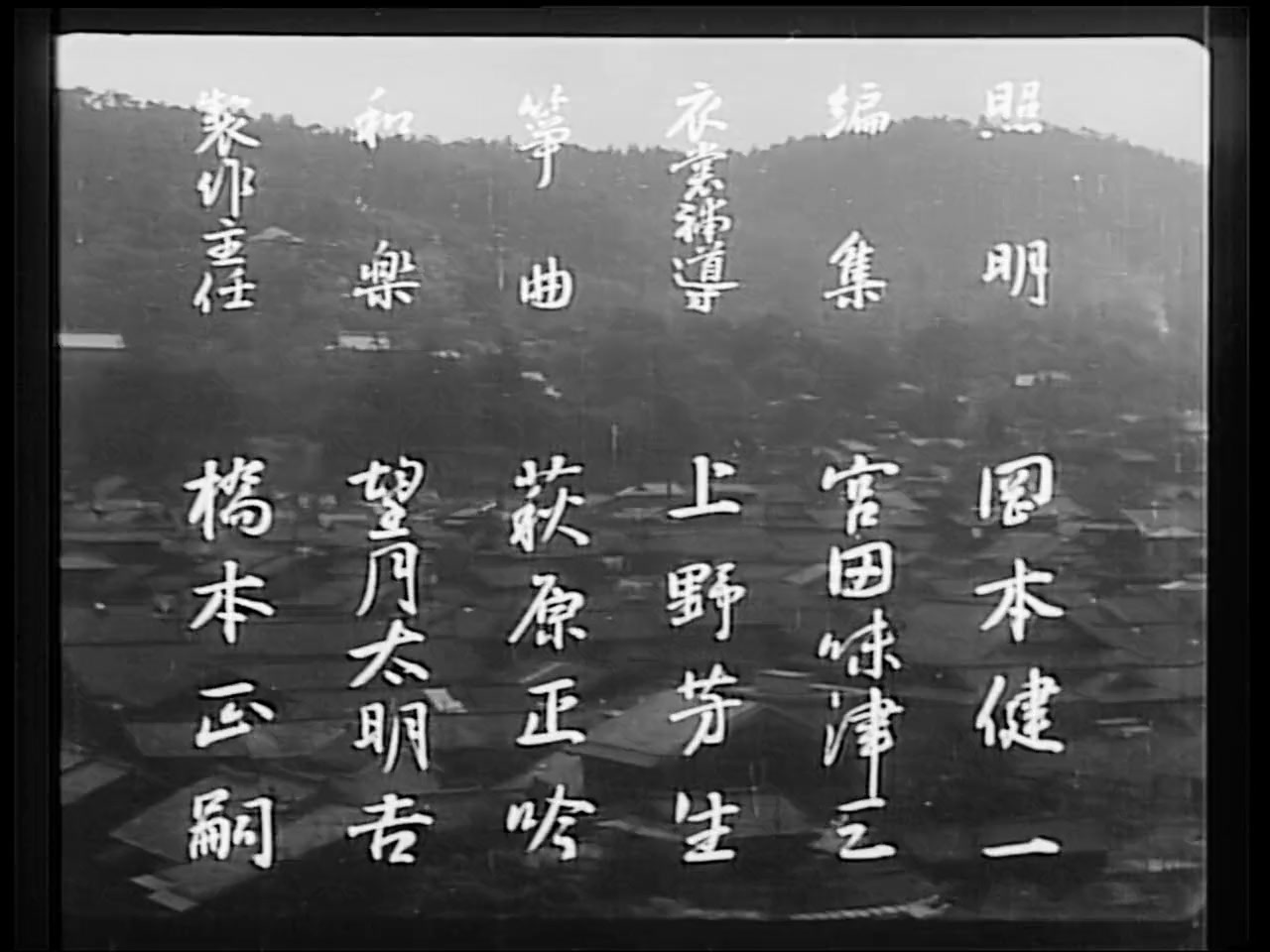
- Year: 1953
- Released: 11 Jun 1978
- Country: Japan
- Adwords: 2 wins
- IMDb: https://www.imdb.com/title/tt0045814/
- Rotten Tomatoes: https://www.rottentomatoes.com/m/a_geisha
- Metacritics:
- Available in: 720p, 1080p,
- Language: Japanese
- MPA Rating: Not Rated
- Genre: Drama
- Runtime: 85 min
- Writer: Matsutarô Kawaguchi, Yoshikata Yoda
- Director: Kenji Mizoguchi
- Cast: Michiyo Kogure, Ayako Wakao, Seizaburô Kawazu
- Keywords: geisha, biting, post war,
 | 7.6/10 |
 | 100% – Critics |
 | 94% – Audience |
A Geisha Storyline
In post-war Japan, sixteen-year-old Eiko seeks out the geisha Miyoharu in the district of Gion, in Kyoto asking her to be a maiko (geisha apprentice). Eiko explains that her mother – who was a geisha and Miyoharu’s friend – has just died, her father Sawamoto has failed in business, and her uncle is harassing her. Miyoharu is a warm-hearted woman and accepts to train her. One year later, Eiko’s father refuses to be her guarantor and Miyoharu borrows a large amount from the tea-house owner Okimi to buy her kimono and debut in a party. Miyoharu changes Eiko’s name to Miyoe and introduces her to clients as her sister. Soon, Miyoharu is charged for the money but neither she nor Miyoe want to have patrons.—Claudio Carvalho, Rio de Janeiro, Brazil and Brian McInnis
A Geisha Photos



A Geisha Torrents Download
| 720p | bluray | 776.28 MB | magnet:?xt=urn:btih:E944D80D2DBCF248B9E43A908E361BA22F666125 | |
| 1080p | bluray | 1.41 GB | magnet:?xt=urn:btih:A0D74E4D28BC033582F982824F8B85C6638F1378 |
A Geisha Subtitles Download
A Geisha Movie Reviews
The Life of a Geisha
In the post-war, the sixteen year-old teenager Eiko (Ayako Wakao) seeks out the geisha Miyoharu (Michiyo Kogure) in the district of Gion, in Kyoto asking her to be a “maiko” (apprentice of geisha). Eiko explains that her mother, who was a geisha and Miyoharu’s friend, has just passed away; her father Sawamoto (Eitarô Shindô) has failed in business; and her uncle is harassing her.
Miyoharu is a warm-hearted woman and accepts to train her. One year later, Eiko’s father refuses to be her guarantor and Miyoharu borrows a large amount from the tea-house owner Okimi (Chieko Naniwa) to buy her kimono and debut in a party. Miyoharu changes Eiko’s name to Miyoe and introduces the teenager to clients as her sister. Soon Miyoharu is charged for the money but neither she nor Miyoe wants to have patrons.
“Gion bayashi”, a.k.a. “A Geisha”, shows the life of geisha in the early 50’s as exploited women without other alternative in life but pleasing clients, no matter how abusive they can be. The cruel system imposes an initial debt of a large amount to someone in order that the woman becomes slave of the “tea-house owner’, or a businessman that may become his “patron” and is almost impossible to leave the prostitution. Both lead characters are strong women bowed by the system. My vote is seven.
Title (Brazil): Not Available.
The Secret Heart of an Imperfect Film
There may be an element of atonement in Mizoguchi’s films about exploited women. It is most powerful in “Street of Shame” but plays a role in “Gion bayashi” as well. The exploiters are bad indeed, though Mizoguchi gives them humanizing motivations; the exploited, while not too good to be true, are much better than most of the people I know.
What makes this visually beautiful film unforgettable and worthy of repeated viewing is, first, the evolving relationship between Older and Younger Sister, which is sufficiently imitative of life to satisfy the most rigorous champion of Kurosawa’s “Lower Depths.” As life happens, these two women evolve. It is this evolution which is the secret heart of “Gion Festival Music.” Second, importantly, it is the nuanced, understated, but heroic performance of Michiyo Kogure as Miyoharu. Her artistry becomes manifest when her character portrait here is compared to her equally successful role of Taeko in Ozu’s “Flavor of Green Tea over Rice,” made the year before. The two women could not be more different, and she accomplishes the differences with bare flickers of change across her face and almost imperceptible alterations in body language.
These qualities inspire me to forgive the overly schematic plot and excessively contrasting portraits of the very good and the very bad.
At the end “Gion Festival Music,” “A Geisha,” or whatever title translation one wishes to use, is not principally about the cruel exploitation of women. The film has a secret. It is a love story. And I love this movie.
Where Will You Go?
Ayako Wakao visits Michiyo Kogure. Like Miss Kogure, Miss Wakao’s mother was a geisha, and now she wishes to be an apprentice. After sorting through the girl’s situation, including a father who’s impoverished, Miss Kogure accepts her old friend’s daughter. The expense is managed by a loan from the woman who runs the largest tea house in town, and Miss Wakao seems to have a brilliant future in front of her…. until she bites a client who tries to rape her.
Kenji Mizoguchi’s movie is not actually about Miss Wakao, who at 20 appears to be half a dozen years younger. It is about the elegant Miss Kogure and the discovery…. no, the re-awakening of her revulsion at the dirty side of what is supposed to be an elegant business. At the time, a 15-year veteran of the movies, she had entered at the same age Miss Wakao was now, and had lately been playing major character roles, like the acidic wife in THE FLAVOR OF GREEN TEA OVER RICE. Here, it’s a pleasure to watch her grow as a human being in Mizoguchi’s always outraged phillipic about the poor position of women in old Japan and new.



